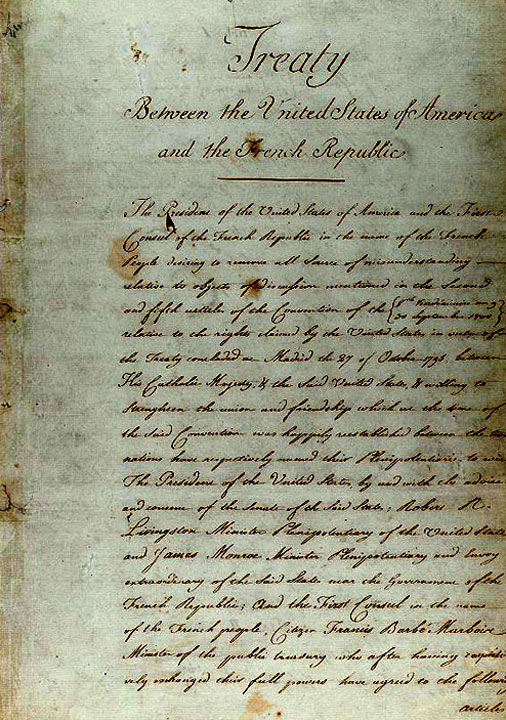FILIBUSTERS REDUX
Brett Marston has a couple of interesting posts, here and here, arguing that it is hypocritical for Republicans to simultaneously oppose requiring an extraconstitutional supermajority (overriding a filibuster) on judicial nominees while supporting Trade Promotion Authority and thus allowing a simple majority vote on treaties rather than the Constitutionally-required 2/3 supermajority.
Update: Here.
I have always understood fast track/TPA to simply require, like base closures, the Senate to vote up-or-down with no amendments, thus making the executive the sole negotiator. I have never seen anything that implied the treaty would also pass minus the 2/3 supermajority and I’m unable to answer the question quickly via Google.
Assuming Brett’s understanding of TPA is right, then his argument is correct. Personally, I would oppose both the filibustering of nominees and the flouting of the supermajority requirement on treaties. I already oppose the longstanding practice of presidents issuing “executive agreements” that bypass the Senate on quasi-treaties.
Update (1308): Francesca is mad as hell and wants to sue.





The technical fact here is that TPA does not apply to treaties, but to trade agreements, which are legally distinct.
One might consider that a mere technicality, but this is a legislatively created category of international agreement and is, therefore, different (I would argue) than merely the rules of the Senate.
Sure. I guess I do tend to consider these things technicalities, although I acknowledge that most of the executive bureaucracy is, in a sense, an unconstitutional delegation of Congressional authority. But trade agreements and executive agreements are, in all but name, treaties. The only practical difference of which I’m aware is the ease of abrogation.
I think Executive Agreements are even less powerful than Trade Agreements, given that they expire with the given administration.
Do you know if there is specific legislative authority for EAs? I am trying to remember and am thinking that it is more a traditional thing, than a formally created power thing, which is a significant difference with TPA.
In fact, the more I think about this (and blogged on it a minute ago), there is an important distinction to be made between TPA and treaty-making.
I honestly don’t know the history of executive agreements, although I’m pretty sure they’ve been around since the days when Founding Fathers were still in the White House.
And I had always missed the two house/simple majority aspect of Fast Track; I thought the deal was that it was just non-amendable.